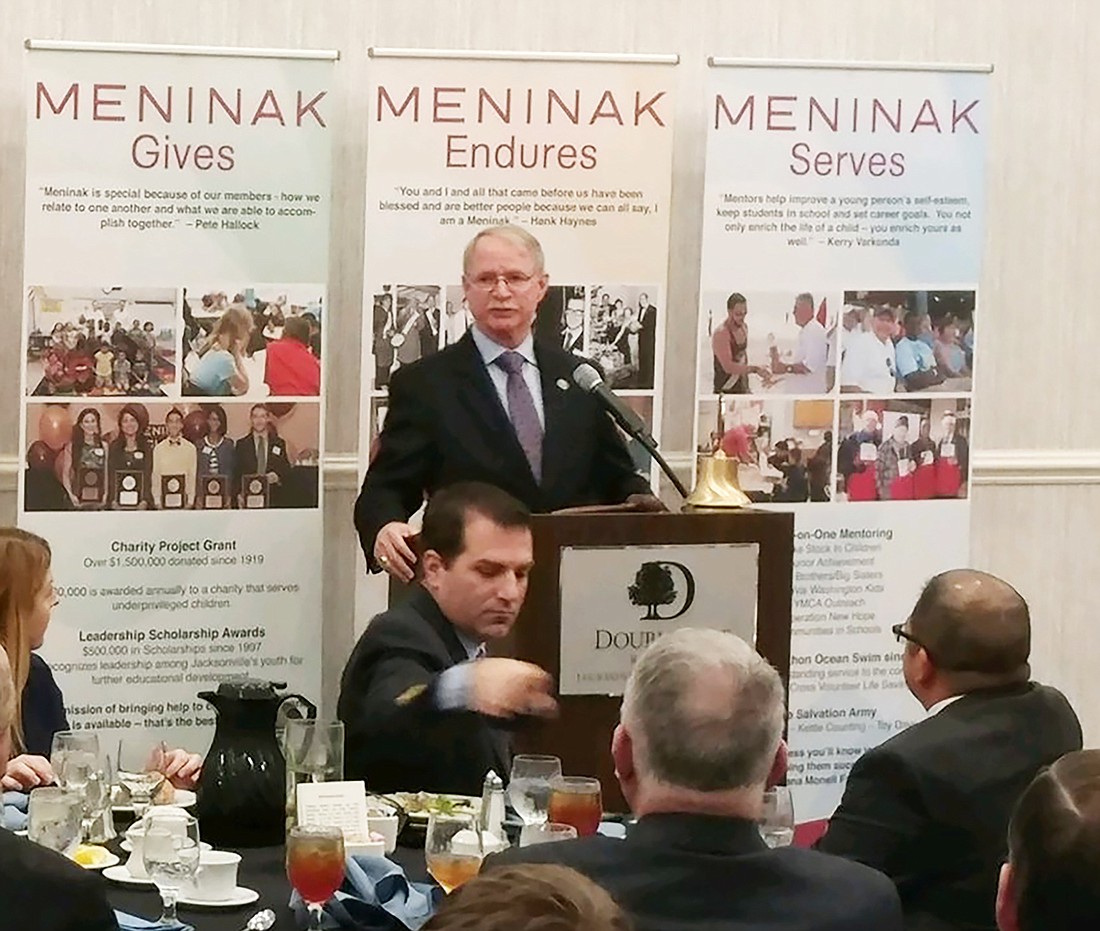
U.S. Rep. John Rutherford this week defended his support of a continuing budget resolution to keep the government open, something he said was motivated by the need to fund the military.
Rutherford, a Republican and former Jacksonville sheriff, spoke to the Meninak Club of Jacksonville on Monday about the budget vote, immigration and his impression of Republican leadership in Congress.
He said he doesn’t support continuing resolutions, but that he voted in favor of the “Bipartisan Budget Act of 2018” that ended an hourslong government shutdown Friday because it increases military spending.
“At four o’clock in the morning last week, I voted for a bill that I don’t like,” Rutherford said. “It’s called compromise, folks.”
The estimated $400 billion bill, signed into law by President Trump, funds the government through March 23. It raises spending caps over the next two years for both the Pentagon and other nondefense programs by $300 billion and includes $91 billion to fund hurricane-related disaster relief for Florida, Texas, Puerto Rico and the U.S. Virgin Islands.
“Last year, we had 80 service members die in training accidents, planes falling out of the sky,” Rutherford said, adding that the military had been “hollowed out” in recent years, creating dangerous conditions for service members.
Rutherford said he told House Speaker Paul Ryan and House Majority Leader Kevin McCarthy that he wouldn’t vote for the bill unless the military funding was in place.
One criticism of the bill is that it likely will send the national deficit beyond $1 trillion in 2019.
To explain his reasoning, Rutherford used the analogy of a house where termites were slowly eating the wood, “that represents the national debt,” and that the need to fund the military represents “the fire consuming the back of the house.”
“Do I put out the fire or do I treat the termites?” he said. “Right now, I think I’ll put out the fire first. You save lives first.”
Rutherford said he believed it was important to separate immigration reform from the budget bill so it had a chance of passing.
On immigration, Rutherford supports the proposal from U.S. Rep. Bob Goodlatte, which would fund construction of a wall along the Mexico-U.S. border, end chain migration and the Diversity Immigrant Visa Program.
Goodlatte is a Virginia Republican.
The bill also provides a path to legal status for children currently protected by the Deferred Action on Childhood Arrivals, or DACA, protection Rutherford said should remain.
“Those kids did nothing wrong. They came here when they were young, this is the only country they know, it’s the only language they speak,” said Rutherford. “To deport them would be horrible.”
He said the country needs those immigrants so they can eventually contribute to the country’s workforce. Older undocumented immigrants, he said, “need to go to the back of the line and wait like everyone else.”
Rutherford did offer some criticism of the Republican Senate leadership, saying the group needs to change a rule requiring a 60-vote majority to overturn a filibuster from Democrats so Republicans don’t waste their current majority.
“I’ve never been in an organization that lets rules get in the way of doing the right thing so many times,” Rutherford said. “Change the rule.”
Another change he said that could halt the gridlock in Congress was the return of district-driven funding, also known as earmarks. The policy was eliminated in the House in 2011.
“They weren’t being done properly and needed to stop,” Rutherford said. “But they can certainly be done where they do build those relationships because people come together because they need each other.”